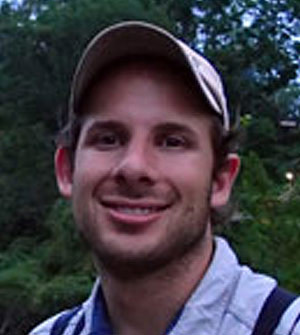
Associate Professor
Email: dkarp@ucdavis.edu
Office: 1071 Academic Surge
Phone: (530) 752-2108
Personal Professional Website:
http://karp.ucdavis.edu
Research:
A key challenge for humanity is conserving wildlife, while still producing enough food to maintain rural livelihoods. The Karp Lab is exploring how strategic adjustments in farming practices, informed by ecological research, can yield wins for conservation and food production.
Research areas: Conservation science; agroecology; ornithology; pest control; food safety.
Education and Experience:
- BS, Biology and Earth Systems, 2009, Stanford University
- PhD, Ecology and Evolutionary Biology, 2013, Stanford University
- Killam Fellow, University of British Columbia 2015-2016
- NatureNet Postdoctoral Fellow, The Nature Conservancy and UC Berkeley 2014-2015
Current Projects:
- Co-managing California farms: Wildlife imposes risks and benefits to agriculture. We are working on California strawberry farms to identify which bird species eat pests, which eat crops, and which carry food borne diseases. We will use this information to develop new practices for growers that optimize on-farm conservation, food safety, and food production.
- Conserving tropical wildlife: The fate of Earth's wildlife will depend on whether it can withstand the combined pressures of climate and land-use change. We are working on farms and forests in Costa Rica, Colombia, and Ecuador to develop forward-looking strategies that mitigate the combined impact of both stressors on tropical birds.
- Developing decision-support tools: Our prior work has shown that conserving nature around farms can help suppress crop pests by benefiting bird and insect predators. Translating this research into practice requires packaging results into tools for decision-makers. We are leading an international group of scientists to develop the first spatial model that will allow users to explore the effects of their land-use decisions on pest control.
Future Projects:
-
Looking forward, the Karp lab will focus on identifying the challenges and opportunities involved in conserving wildlife in farming landscapes, both in California and in the tropics. Key questions we will address include:
What makes some species resilient and others vulnerable to land use and climate change,
When would we expect conservation to increase pest control and prevent pest outbreaks, and
How does soil management affect the persistence of food borne pathogens?

